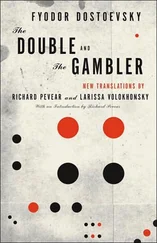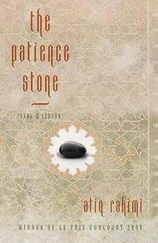What a shame!
“…It looks like an interesting book. A mystical story,” persists the man seriously. And Rassoul continues to curse his muteness, his inability to explain that indeed Dostoevsky is not a revolutionary or a communist, but a mystic. He has said this countless times, but his Russian lecturers would never agree; they didn’t approve of that sort of eastern interpretation. And in any case, they couldn’t stand Dostoevsky. In Russia, the communists hated him. They wouldn’t accept that Dostoevsky’s thought went beyond individual psychology to dwell on the metaphysical. This book is best read in Afghanistan, a land previously steeped in mysticism, where people have lost their sense of responsibility. Rassoul is convinced that teaching it here would decrease the number of murders!
What naivety!
Forget Dostoevsky, save yourself, pay attention to this man who is saying to you: “As soon as you get your voice back, come and see me and we’ll discuss all this in a civilized manner.”
OK, nods Rassoul, lethargically.
“My boys won’t give you any more trouble,” says the man, gathering up the books. Then he looks curiously at Rassoul, remembering something: “There is one thing that intrigues me.”
What?
“Jano tells me that when they came in, you tried to run away. Why?”
No, he didn’t want to run away, honestly. He was having a nightmare. The door and the window were jammed shut and he was unable to open them. Look how he has injured his hands.
But who would believe that you can smash a window while dreaming?
The man stares at the hands Rassoul holds out to him. He says, sorrowfully, “We’re trying to create order in this neighborhood. But it isn’t easy, and disarming the population is not enough. You take their guns, and they start using knives and axes… Someone was killed with an ax just yesterday, in broad daylight.” That’s it, they have discovered Nana Alia’s body. And here am I, the murderer, talking with the head of security for the whole city!
Rassoul goes pale. He collapses on the sofa.
“What’s the matter, watandar ?”
Shaken, Rassoul stares at the man with trembling lips. “You look tired. Take your books and go home. You can chat with me another day.” He winks at Rassoul, picks up his gun and walks over to wake Jano and the other guard. “Right boys, take this young man back home!” Then to Rassoul, “What is your name?”
Rassoul writes it down.
“Rassoul, we need educated people like you, to serve the nation and Islam. Come and sign up tomorrow, help us to make this neighborhood safe. You come from here. You know everyone’s business, everyone’s past. You know who lives in each house, and what goes on inside it…” He smiles with disarming courtesy as he heads toward the door, then turns back to Rassoul: “Come in and ask for Parwaiz; that’s my name.” And he is gone. The sly fox! He must know everything. But what does he want from me?
“Come on, Rassoulovski, let’s go!” orders a sleepy Jano. Rassoul doesn’t move. “Don’t you want to go home?”
BEFORE ENTERING the courtyard of his house, Rassoul wishes for just two things: first, that there won’t be any blood under the tree (he’s still nervous about his nightmare); second, that he won’t see Yarmohamad—he doesn’t want to dirty his hands with the festering blood of the man he hates, death would be a blessing to someone like that. He must insinuate his way into his life, haunt his soul, enter his dreams, become his fate.
So in he walks, carrying his books. In the moonlit night, he approaches the tree and runs his hand over its trunk. He bends down to check the ground beneath it. No trace of blood. He straightens and looks up at his bedroom window. The glass really is smashed. Then he turns toward Yarmohamad’s window. After a brief hesitation, he walks over and shouts that he is back, safe and sound. His cry sticks in his throat. So he raps on the window. Yarmohamad’s shaved head looms up out of the darkness. His face is crumpled with sleep and he tells Rassoul to quiet down so as not to wake his wife and children. A waste of time—Rassoul keeps banging on the window. Then he waves his books, and gives Yarmohamad the finger. After that, he turns away and heads to his room. Relieved, and triumphant.
Go on, Yarmohamad, sleep now if you can, the nightmares will come for you this time! I will haunt your dreams.
Once in his room, he feels like shouting. Shouting with joy. Or horror. He exhales forcefully, hoping to summon a noise from his throat. But nothing comes out. Just breath—which burns, but expresses neither joy nor horror.
Cold sweat runs down his back. He throws the books on the ground and lights a candle. The broken window is the thing that interests him most; he still can’t understand how he managed to smash it in his sleep.
Have I gone mad? Don’t they say that the first sign of madness is when nightmares start breaking out of your sleep to penetrate waking life and take up residence there?
Despairing, he removes his shoes and lies down. He is afraid to close his eyes. Afraid of nightmares. Yes, it is these bed devils, these shadowy figures of the night that are stealing my voice and driving me mad. I will sleep no more!
But his exhaustion is greater than his will. It closes his eyes and pushes him into the depths of darkness. Only the nearby explosion of a rocket rescues him. He starts, and sits up sweating. His tongue is still dry, his chest burning.
Silence, again.
* * *
The mountain engulfs the moon.
The night consumes the candle.
The darkness dulls the room.
Rassoul stands up. Sticks a new candle onto the corpse of the old one, drinks some water, and returns to bed. He doesn’t want to lie down anymore. He sits up against the wall. What shall he do? Read a book. He leans over and picks one at random but then tosses it aside and rummages for the first volume of Crime and Punishment , which he opens at the page where Raskolnikov returns home after the murder…
So he lay a very long while. Now and then he seemed to wake up, and at such moments he noticed that it was far into the night, but it did not occur to him to get up. At last he noticed that it was beginning to get light. He was lying on his back, still dazed from his recent oblivion. Fearful, despairing cries rose shrilly from the street, sounds that he heard every night, indeed, under his window after two o’clock. They woke him up now.
“Ah! The drunken men are coming out of the taverns,” he thought, “it’s past two o’clock,” and at once he leaped up, as though someone had pulled him from the sofa.
“What! Past two o’clock!”
He sat down on the sofa—and instantly recollected everything! All at once, in one flash, he recollected everything.
For the first moment he thought he was going mad. A dreadful chill came over him; but…
The cold isn’t coming from outside. No, the weather isn’t cold at all. Rather it’s a chill, a strange kind of chill from inside the room. It is emanating from the faded walls, the blackened, rotting beams…
He stands, walks over to the window and opens it. What a beautiful day it is, outside! He puts on his shoes and rushes out of the room, down the stairs and across the courtyard, managing to avoid his landlord. Now he’s in the street. Heart leaping and body light, he heads for the river. All around, women, men, young people, musicians are strolling in the afternoon sun. He wanders among them on the banks of the Neva River. No one notices him. No one looks at him suspiciously. And yet he must stand out, in these worn, bloodstained clothes. What joy to go unnoticed, to be imperceptible! Enchanted by the thrill of invisibility, he suddenly, among the crowd, spots a woman in a sky-blue chador. What is she doing here, in Saint Petersburg? She passes him at great speed. He stares at her, confounded. He knows that walk. She disappears into the crowd. He soon pulls himself together and rushes after her. He spots her crossing a busy junction in her chador. He starts sprinting, until he comes close enough to reach out and touch her. He manages to grab hold of her chador and pull it off. The woman is naked. Appalled, she curls into a ball to hide her body and face, but also the object she holds in her hands. Then, slowly, she looks up. It is Sophia. Between her knees is Nana Alia’s jewelry box. Confused, Rassoul looks at her and murmurs something inaudible. Then he shuts his eyes and throws himself at her feet to cry out in thanks. He feels saved. She has saved him. A hand is shaking him. “Rassoul! Rassoul!” It is not Sophia’s voice. It’s a man’s voice. A man he knows. Razmodin, his cousin. But where is he?
Читать дальше












